Latest News and Amazing New Data
18 November 2020
A warm welcome to all our new subscribers from the warm heart of Africa.
Tiyeni is a small Malawian NGO achieving spectacular results, doubling, or tripling crop yields for farmers in the first year. This is achieved using Deep Bed Farming (DBF): a low-tech, low-cost innovative method.
Farmers switching to DBF have seen crop yields typically doubling or tripling (an average of a 145% increase) and latest results have been even more dramatic: a nearly fourfold increase for the farmers studied, compared to conventional ridge farming methods popular in Malawi.
Requests from farmers wishing to adopt DBF have grown exponentially, and the community of those practicing DBF has grown from 38 farmers in 2012 to around 17,500 farmers today, in all three regions of Malawi. Demand for training is huge, spread by word of mouth: farmers can see DBF works, and in their words it "is common sense."
DBF involves first using a pickaxe to break up the hard compacted layers of earth several inches under the ground, which are prevalent across large areas of Malawi. Once deep beds are formed the soil is never trodden on again, and the (already transformational) method harnesses practices like composting, mulching (rather then burning crop residues), cover crops, rotation and no-till multi-cropping, to achieve transformational results.
In our charity project areas of Chinyama and Chitheka, farmers are getting very low yields (some below 2.0 ton/hectare) without DBF, but with DBF the yields in Chitheka have jumped up to about 8.0 ton/hectare, and harvests in Chinyama have leapt to just above 6.0 tons. These life changing results mirror what we have seen in other communities, like Emsizini, Chikangawa and Manyamula, documented in the research page of our website.
Tiyeni has been training farmers independently to farm in this way for many years and we know our approach works; now we understand better WHY it works, having come across one of Dr. Elain Ingham's talks a few weeks ago. Dr. Ingham discovered the soil food web nearly 4 decades ago and is recognised as one of the foremost soil biologists in the world. We were amazed to discover that we have been practicing some of the techniques included in Dr. Elaine's Soil Food Web Approach, and are delighted to say that this synergy has led to a partnership between our organisations, detailed below.

Soil Food Web Partnership
The Soil Food Web School is an international community of change agents who are making an impactful difference in the effort to rescue our planet. They train people who help farmers to transition away from using chemicals, to working in harmony with soil biology. This results in significant benefits to the farmer and to the environment, as well as to the consumer. When Tiyeni discovered Soil Food Web, there was so much that rang true to DBF methodology that we immediately made contact.
We are delighted to share that the Soil Food Web School has awarded Tiyeni 10 scholarships for the Foundation Courses and the Certified Lab-Tech Program, worth USD$60,000. These scholarships will train Tiyeni staff to understand how soil biology functions and how to quantify soil microorganisms using the microscope. This will enable Tiyeni staff to improve the biological profile of the compost that they train farmers to make, strengthening Tiyeni's approach to ‘Feed the soils – not just the plants.
We look forward to long term beneficial relationship between our organisations.
Chitheka Hotspot project
In Malawi over 65% of the land is cultivated, which is more than twice the land size that is suitable for agriculture (31%). Changes in land management practices are imperative in the country for current and future sustainable livelihoods. Tiyeni's project location in Chitheka, Northern Malawi, is a typical example of the fragile highlands that run down into the Rift Valley. The Austin Bailey Foundation agreed to fund a project in this area after the rural communities made very strong requests for training in Deep Bed Farming (DBF)
Until Tiyeni arrived, farmers in Chitheka EPA were farming in an unsustainable way at the expense of conserving the soil and environment for biodiversity. This happens by felling trees for charcoal production, ‘shifting cultivation’ on steep slopes, in a way that exploits the land at the expense of the soil. The result is massive loss of topsoil (over 30 tonnes per hectare per annum), and surface water runoff.
However, farmers here who adopted DBF in 2019 see this technology as a game changer. Not only is all the water that falls from the sky retained on the land where it falls, but there is no erosion and consequent loss of topsoil. Not only that, but in the first year of adoption, yields of crops have been higher than these farmers have ever seen before. For many of them, over FOUR TIMES the previous yields. They now have abundant food from their fields. Other farmers and local traditional leaders increasingly appreciate the effectiveness of DBF. They are impressed at that and have learnt that their soil is no longer lost. We know DBF is effective in lots of different areas of Malawi and we expect it to be the same in Mozambique, Tanzania and other neighbouring countries - we just don't have the capacity to reach these areas yet.
It is very challenging for Tiyeni staff to access this area as can be seen (below) with Field Officer Khalani crossing the Lweya river below to reach farmer fields in the area - washed-away footbridges and footpaths hinder movement.
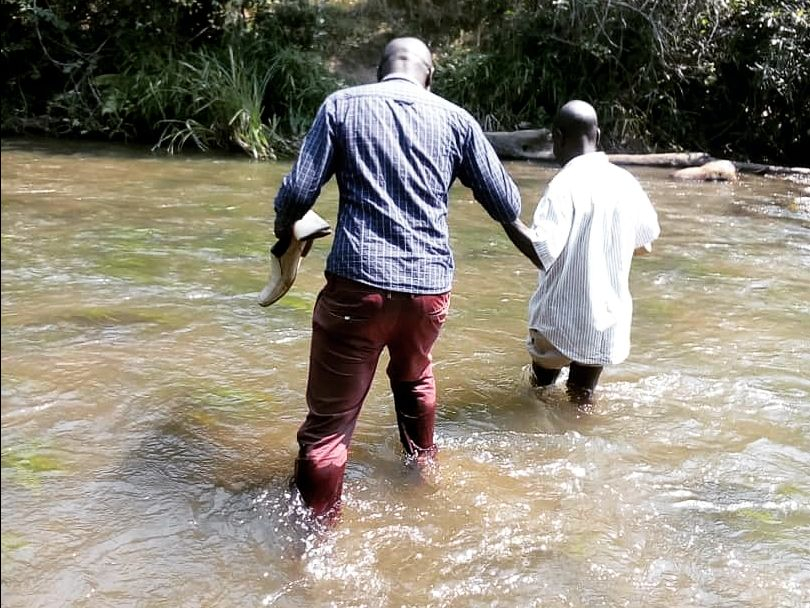
Chitheka case studies:
Ida is a new DBF adopter and was impressed with a bumper harvest realized by her lead Farmer, Maida Chirwa, in the 2019 to 2020 growing season. This season she has made her own deep beds of 0.2 ha in Liungu Section. For labour, Ida has used extended family support for land tillage, production of organic compost and deep bed making. The field picture below shows Ida with Tiyeni Field Officer, Khalani, emphasizing the importance of observing essential elements in the DBF system such as appropriate compost application before the planting rains start, so that the physical properties of the soil are improved. Ida plans to establish integrated and harmonised farming technologies in a coordinated manner in order to appreciate the best from different systems. She has decided to run a comparison of pit planting, conventional ridges and DBF alongside each other for comparison. Tiyeni always supports a farmers’ choices.
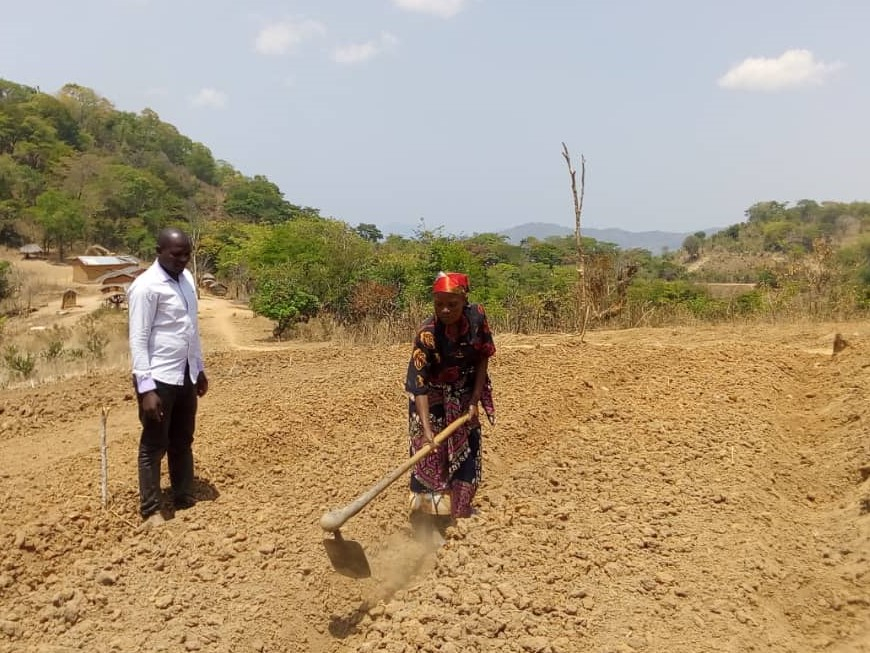
Melina has extended her DBF field after being impressed with the previous years harvest. She has a large extended family and in the past she could not manage to feed everyone because of low harvests. Since the adoption of DBF, however, she has enough food to feed her family up to January 2021 when the first of the new harvests will be ready. In the past the food supply would run out as early as July. She knows, and tells all her neighbours that in a DBF field there is no soil lost and surface run off is greatly controlled.
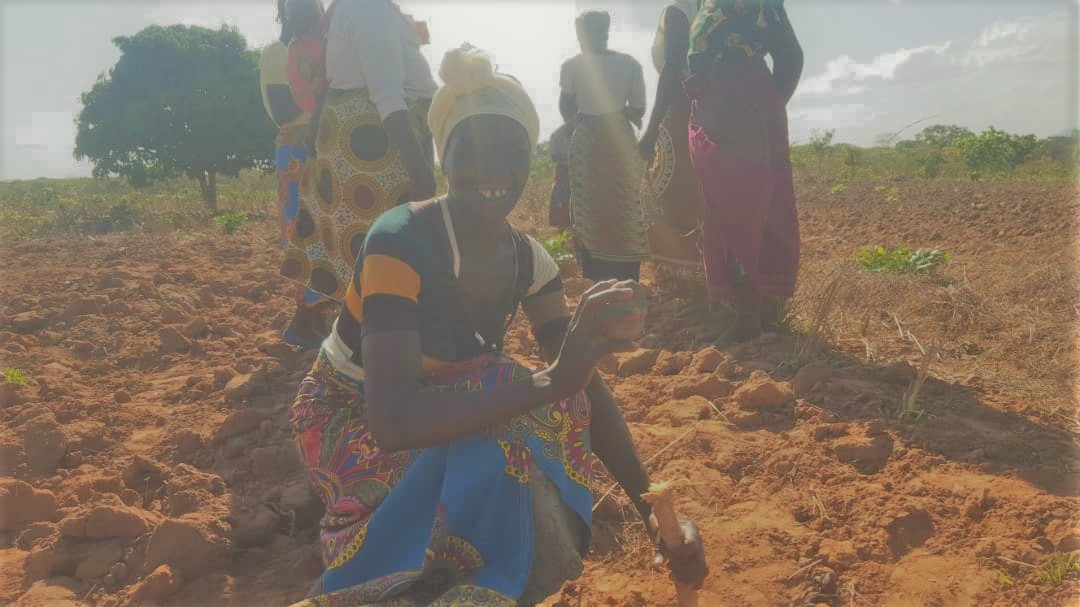
Godfrey Kumwenda, Training Manager,
reflects on where participation of women is crucial
Women make up almost half of the world’s farmers, and over the last few decades, they have broadened their involvement in agriculture. In Malawi and other developing countries, women are the backbone of the rural economy. However, many women are side-lined when it comes to owning productive assets such as land. In the northern district of Chitipa under Traditional Authority Mwaulyamba, there is a different case of a group of 13 women from Mubanga Village. Members of this group have vowed to improve their lives and of their dependents. No longer shall they be side-lined in community activities and this will result in the end of hunger and poverty. They have adopted a new farming technology known as Tiyeni's, Deep Bed Farming (DBF).
Mubanga Village, situated at the foot of Mafinga Hills on the border of Malawi and Zambia, is very isolated from Government extension services and other support. These women were unable to access extension services until they met Tiyeni field staff. After attending a field day conducted at Lufita Extension Planning Area, organised by Tiyeni lead farmers, the women decided to adopt DBF technology with an aim of ending hunger and poverty at household level. Despite little help except their powerful enthusiasm, they started tilling their fields in a way they learned from the field day by breaking the hard pan down to 30cms. Their enthusiasm and willingness to learn resulted in asking for technical advice from Tiyeni staff. It was only then that Tiyeni became aware and arranged to meet this group. It was amazing to see that all 13 women had already tilled 0.1ha each.
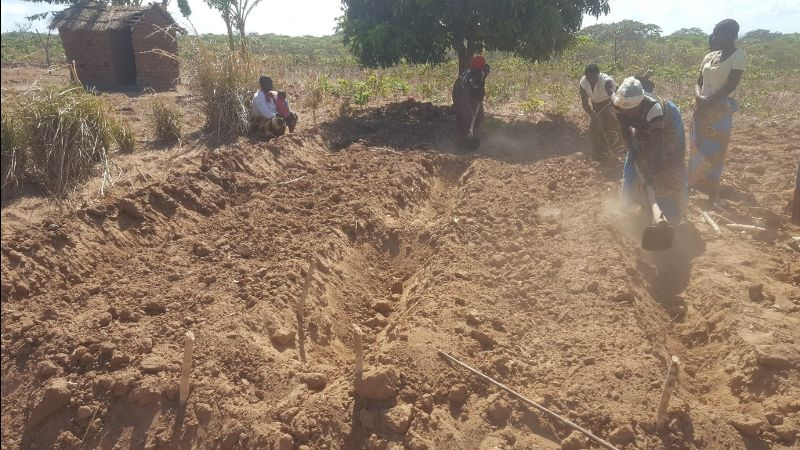
Tiyeni staff responded quickly and conducted DBF training right away - it was discovered that most of the women represent female-headed householders. As primary caregivers to their families, the women provide food and nutrition; they are the human link between the farm and the table. This complements their goals and objectives which they've set to achieve. The Group have adopted a motto; “ending hunger and poverty through DBF”.
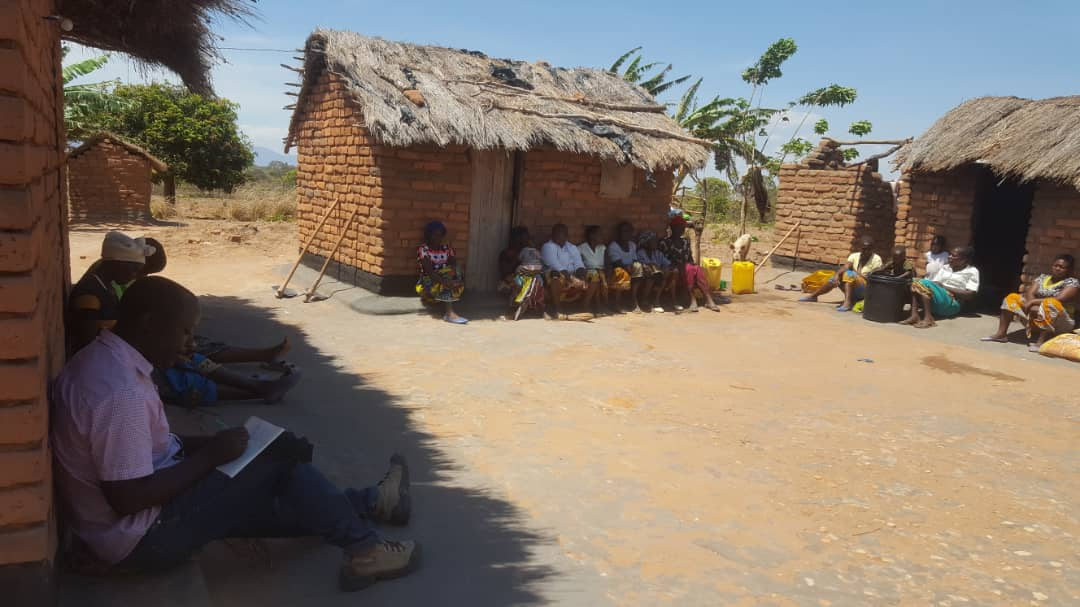
As the global community works towards achieving the Sustainable Development Goals (SDGs) -- among them, SDG2, which aims to end hunger and malnutrition by 2030 -- women can be the key agents of change in agriculture, nutrition and rural development. With better access to information, training, and technology, women can alter food production and consumption, so that land and resources are used sustainably. This is why Tiyeni regards women as key agents in ending hunger and poverty in their communities. Women need all the support we can give them in order to attain SDG2 by 2030.
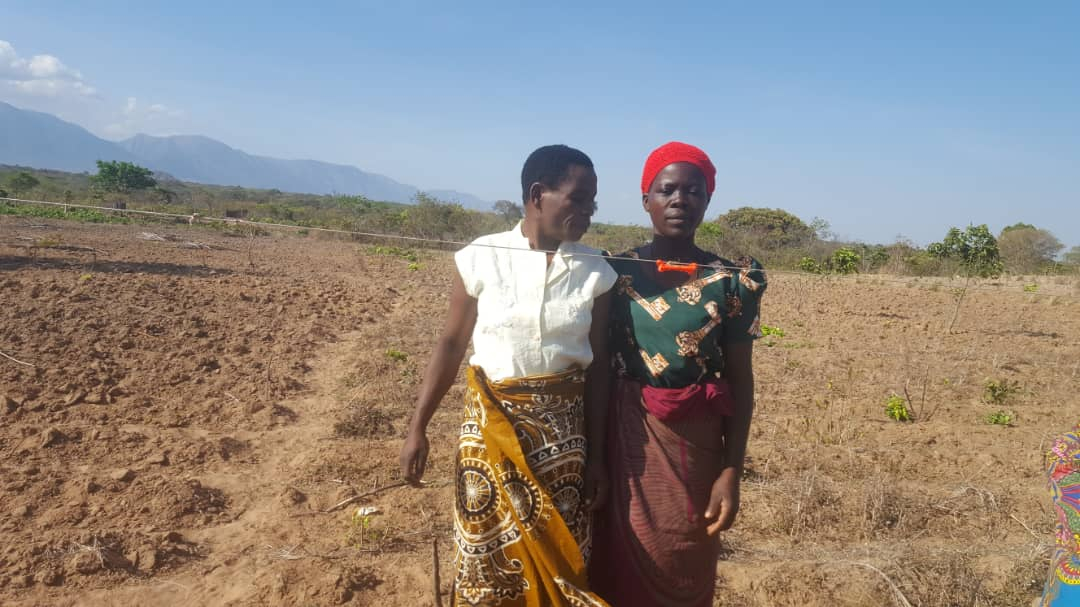
Thank you for your continuing interest in our cause and work to increase farming yields in Malawi. We hope you are all well and stay safe.
The Tiyeni team
Help Tiyeni's Covid-19 response, and support us in training even more farmers to adopt the Deep Bed Farming method by donating here.